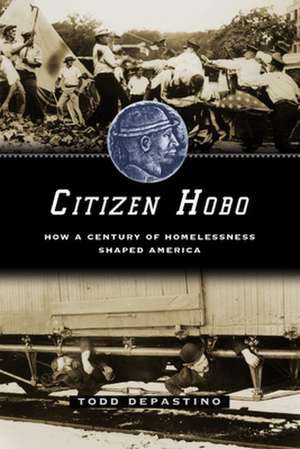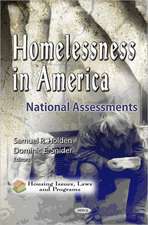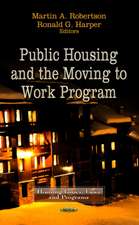Citizen Hobo: How a Century of Homelessness Shaped America
Autor Todd DePastinoen Limba Engleză Paperback – 8 iul 2005
In the years following the Civil War, a veritable army of homeless men swept across America's "wageworkers' frontier" and forged a beguiling and bedeviling counterculture known as "hobohemia." Celebrating unfettered masculinity and jealously guarding the American road as the preserve of white manhood, hoboes took command of downtown districts and swaggered onto center stage of the new urban culture. Less obviously, perhaps, they also staked their own claims on the American polity, claims that would in fact transform the very entitlements of American citizenship.
In this eye-opening work of American history, Todd DePastino tells the epic story of hobohemia's rise and fall, and crafts a stunning new interpretation of the "American century" in the process. Drawing on sources ranging from diaries, letters, and police reports to movies and memoirs, Citizen Hobo breathes life into the largely forgotten world of the road, but it also, crucially, shows how the hobo army so haunted the American body politic that it prompted the creation of an entirely new social order and political economy. DePastino shows how hoboes—with their reputation as dangers to civilization, sexual savages, and professional idlers—became a cultural and political force, influencing the creation of welfare state measures, the promotion of mass consumption, and the suburbanization of America. Citizen Hobo's sweeping retelling of American nationhood in light of enduring struggles over "home" does more than chart the change from "homelessness" to "houselessness." In its breadth and scope, the book offers nothing less than an essential new context for thinking about Americans' struggles against inequality and alienation.
In this eye-opening work of American history, Todd DePastino tells the epic story of hobohemia's rise and fall, and crafts a stunning new interpretation of the "American century" in the process. Drawing on sources ranging from diaries, letters, and police reports to movies and memoirs, Citizen Hobo breathes life into the largely forgotten world of the road, but it also, crucially, shows how the hobo army so haunted the American body politic that it prompted the creation of an entirely new social order and political economy. DePastino shows how hoboes—with their reputation as dangers to civilization, sexual savages, and professional idlers—became a cultural and political force, influencing the creation of welfare state measures, the promotion of mass consumption, and the suburbanization of America. Citizen Hobo's sweeping retelling of American nationhood in light of enduring struggles over "home" does more than chart the change from "homelessness" to "houselessness." In its breadth and scope, the book offers nothing less than an essential new context for thinking about Americans' struggles against inequality and alienation.
Preț: 280.04 lei
Nou
Puncte Express: 420
Preț estimativ în valută:
53.59€ • 58.44$ • 45.18£
53.59€ • 58.44$ • 45.18£
Carte tipărită la comandă
Livrare economică 24 aprilie-08 mai
Preluare comenzi: 021 569.72.76
Specificații
ISBN-13: 9780226143798
ISBN-10: 0226143791
Pagini: 350
Ilustrații: 15 halftones, 1 map, 11 line drawings
Dimensiuni: 152 x 229 x 25 mm
Greutate: 0.51 kg
Editura: University of Chicago Press
Colecția University of Chicago Press
ISBN-10: 0226143791
Pagini: 350
Ilustrații: 15 halftones, 1 map, 11 line drawings
Dimensiuni: 152 x 229 x 25 mm
Greutate: 0.51 kg
Editura: University of Chicago Press
Colecția University of Chicago Press
Notă biografică
Todd DePastino is an independent scholar in Pittsburg.
Cuprins
List of Illustrations
Acknowledgments
Introduction
Part I: The Rise of Hobohemia, 1870-1920
1. "The Great Army of Tramps"
The Making of America's Tramp Army
Tasting from the "Fountain of Indolence": Origin Myths of Tramping
2. The Other Side of the Road
"The Broken Home Circle"
From Patriarch to Pariah
"From the Fraternity of Haut Beaus"
3. "Hallelujah, I'm a Bum!"
The Opening of the Wageworkers' Frontier
The Main Stem
"(White) Man's Country"
Hobosexuality
Part II: Hobohemia and Homelessness in the Early Twentieth Century
4. The Politics of Hobohemia
Organizing the Main Stem
"The Song of the Jungles"
5. "A Civilization without Homes"
Reforming the Main Stem
The "Hotel Spirit"
The Comic Tramp
Part III: Resettling the Hobo Army, 1920-1980
6. The Decline and Fall of Hobohemia
The Closing of the Wageworker's Frontier
Contesting Hobohemia
7. Forgotten Men
A New Deal for the American Homeless
Folklores of Homelessness
8. Coming Home
The Decline and Fall of Skid Row
Dharma Bums and Easy Riders
Part IV: The Enduring Legacy: Homelessness and American Culture Since 1980
9. Rediscovering Homelessness
The New Homeless
Romancing the Road, Surviving the Streets
Notes
Index
Acknowledgments
Introduction
Part I: The Rise of Hobohemia, 1870-1920
1. "The Great Army of Tramps"
The Making of America's Tramp Army
Tasting from the "Fountain of Indolence": Origin Myths of Tramping
2. The Other Side of the Road
"The Broken Home Circle"
From Patriarch to Pariah
"From the Fraternity of Haut Beaus"
3. "Hallelujah, I'm a Bum!"
The Opening of the Wageworkers' Frontier
The Main Stem
"(White) Man's Country"
Hobosexuality
Part II: Hobohemia and Homelessness in the Early Twentieth Century
4. The Politics of Hobohemia
Organizing the Main Stem
"The Song of the Jungles"
5. "A Civilization without Homes"
Reforming the Main Stem
The "Hotel Spirit"
The Comic Tramp
Part III: Resettling the Hobo Army, 1920-1980
6. The Decline and Fall of Hobohemia
The Closing of the Wageworker's Frontier
Contesting Hobohemia
7. Forgotten Men
A New Deal for the American Homeless
Folklores of Homelessness
8. Coming Home
The Decline and Fall of Skid Row
Dharma Bums and Easy Riders
Part IV: The Enduring Legacy: Homelessness and American Culture Since 1980
9. Rediscovering Homelessness
The New Homeless
Romancing the Road, Surviving the Streets
Notes
Index














